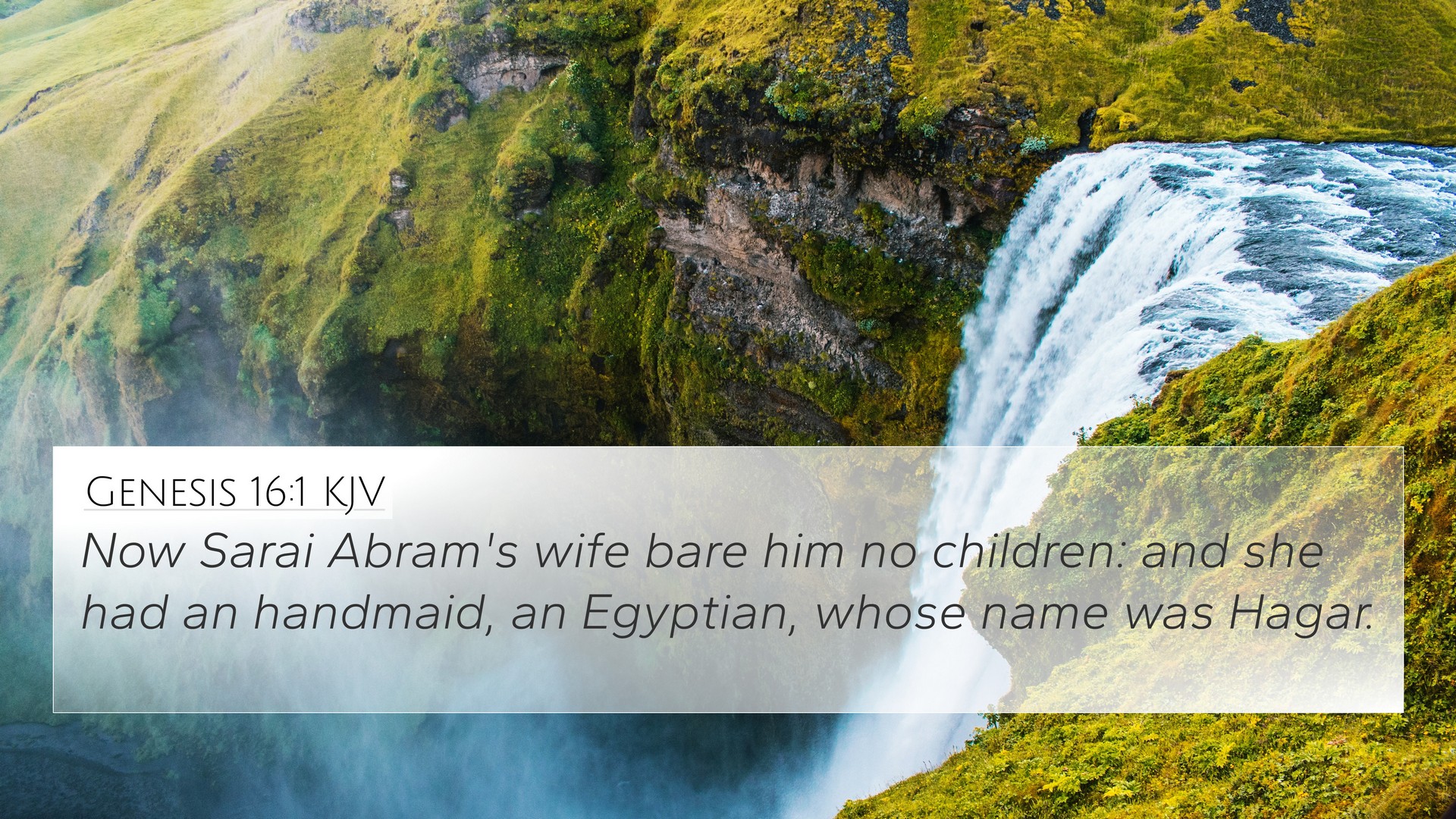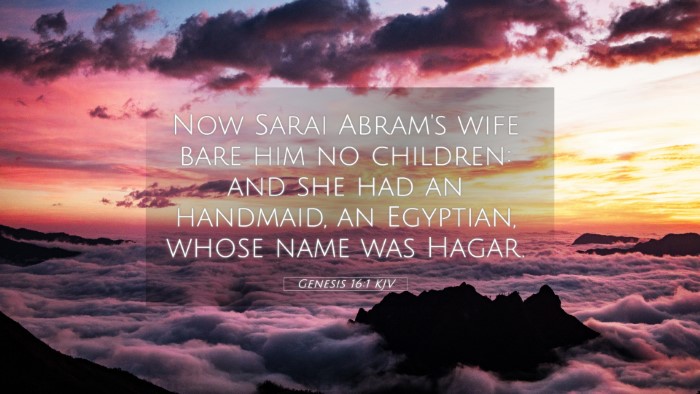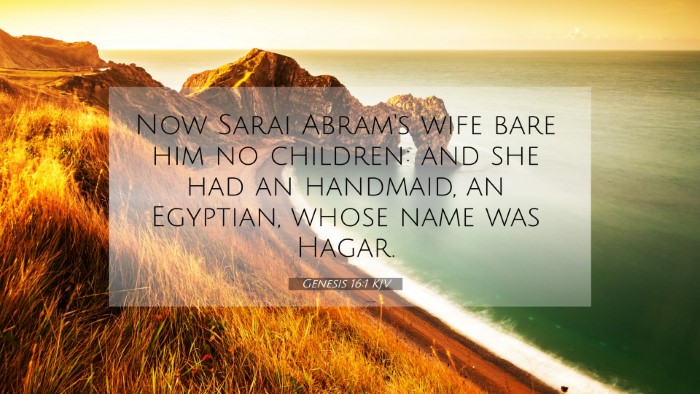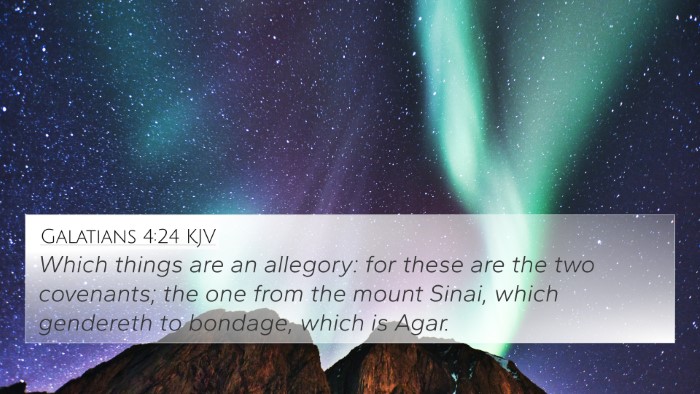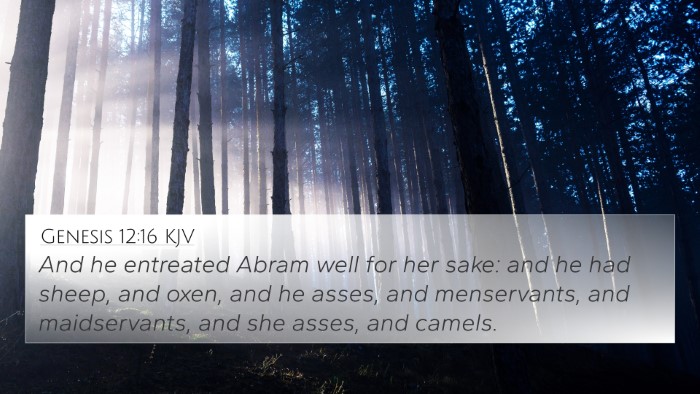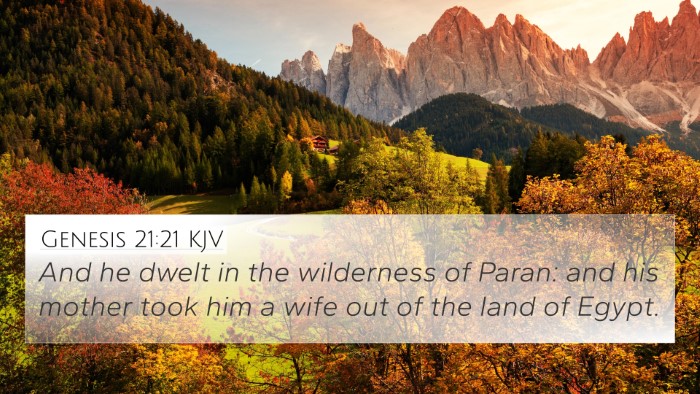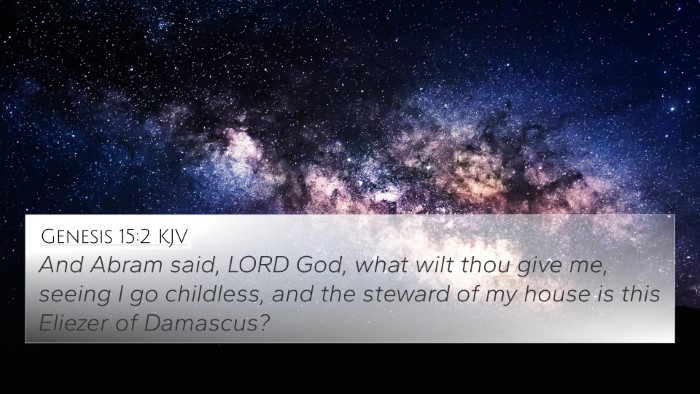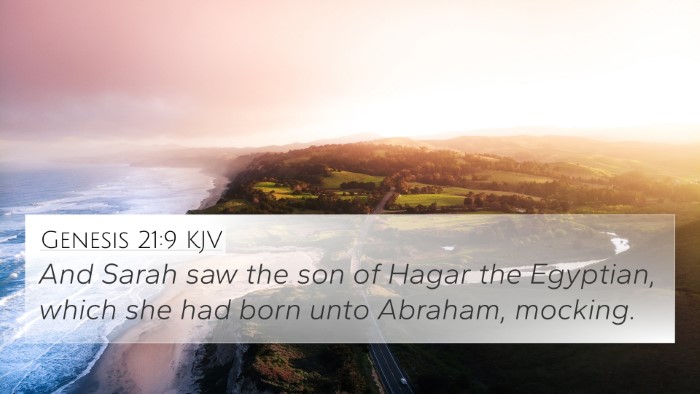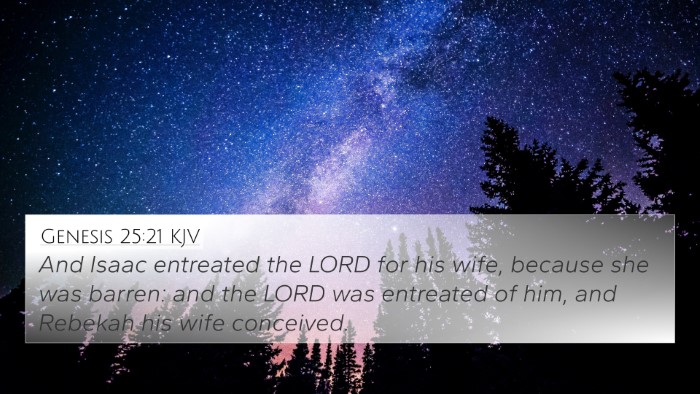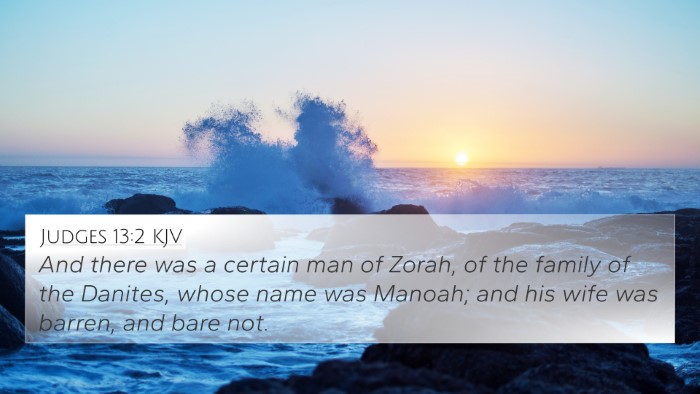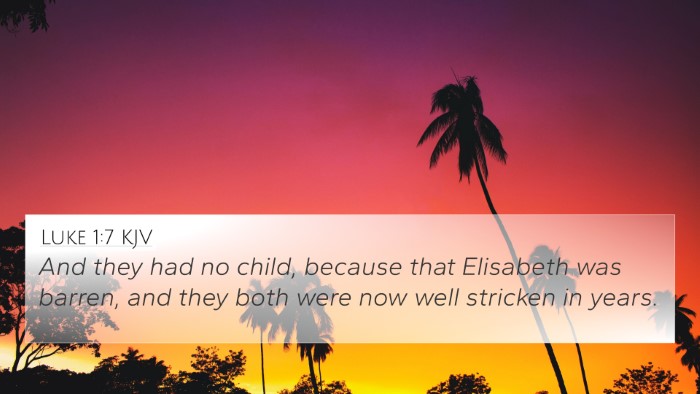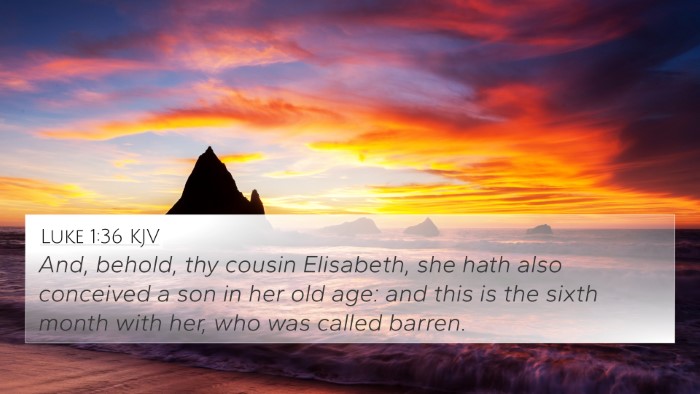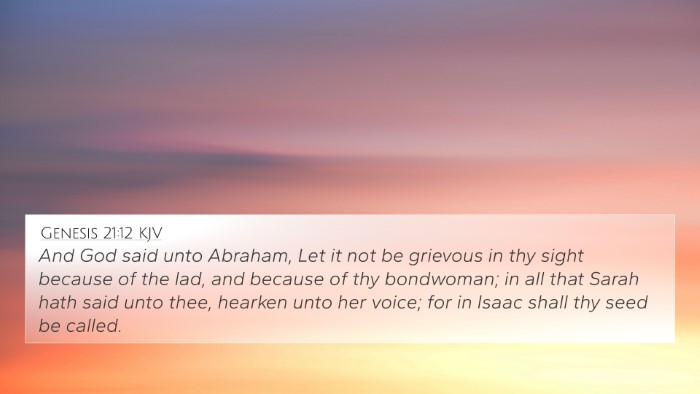Understanding Genesis 16:1
Genesis 16:1 introduces a pivotal moment in the narrative of Abram (Abraham), highlighting themes of faith, human interference, and divine timing. The verse states:
"Now Sarai, Abram's wife, bare him no children: and she had an handmaid, an Egyptian, whose name was Hagar."
Summary of Genesis 16:1
This verse sets the stage for the introduction of Hagar, reflecting Sarai's struggle with infertility and her subsequent decision to take measures into her own hands. In a cultural context where bearing children was a sign of blessing, Sarai’s predicament leads her to suggest a surrogate solution.
Commentary Insights
-
Matthew Henry:
Henry emphasizes the sorrow of Sarai because of her barrenness and how this led to her desperation. He notes that instead of waiting on God's promise, Sarai resorted to human schemes, showcasing the tension between faith and actions driven by doubt.
-
Albert Barnes:
Barnes points out the societal norms during Abram's time, where a servant could bear children for a barren wife. He highlights that this decision was rooted in a lack of reliance on God's timing, which ultimately leads to familial discord.
-
Adam Clarke:
Clarke elaborates on the consequences of Sarai’s plan, indicating that this act was in opposition to God's will. He reminds readers that while God had promised Abram descendants, the wait was a test of faith that Sarai failed to endure.
Thematic Connections
Genesis 16:1 invites numerous thematic connections and cross-references within scripture:
-
Genesis 12:2-3:
God promises Abram that he will become a great nation and be a blessing. Sarai's impatience contrasts with this divine assurance.
-
Genesis 15:4-5:
God reaffirms his promise, indicating that Abram’s heir will come from his own flesh, yet Sarai struggles to believe this.
-
Galatians 4:22-23:
This New Testament epistle discusses the allegorical significance of Hagar and Sarah, illustrating the contrast between law and grace.
-
1 Peter 3:5-6:
This verse reflects on the faith of holy women like Sarah, juxtaposing Sarai's actions with ideal obedience and trust in God.
-
Hebrews 11:11:
The faith of Sarah is highlighted, and her ability to bear children is seen as rooted in her trust in God’s promise, contrasting with her initial disbelief.
-
Romans 4:20-21:
Paul emphasizes Abraham’s unwavering faith in God's promises, which showcases the central theme of faith versus human effort.
-
Genesis 21:9-10:
Here, the repercussions of Sarai's choice are further explored, highlighting the conflict between Sarah, Hagar, and their sons.
-
Exodus 2:1-10:
Relates to the theme of God’s providence through unlikely circumstances, paralleling the story of Moses and God’s plans for deliverance.
-
Job 5:15:
Speaks to the theme of divine oversight in human affairs, echoing how God works even through human failures.
-
Matthew 1:3:
Hagar's role is seen through the genealogy of Jesus, reminding readers of God's inclusion of all in His redemptive plan.
Cross-Referencing Biblical Texts
The act of cross-referencing provides deeper insights into Genesis 16:1:
Final Thoughts
Genesis 16:1 serves not only as a historical narrative but as a profound lesson on the intricacies of faith, the consequences of impatience, and the reminder of God’s overarching plan. Through careful cross-referencing and studying connections between Bible verses, one can grasp the deeper theological implications and the character of God in the lives of His people.
